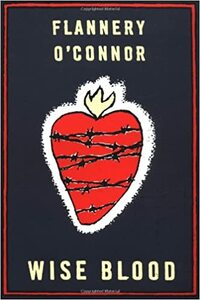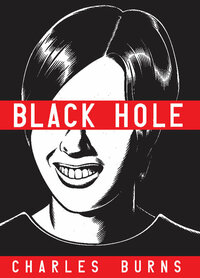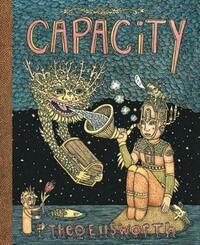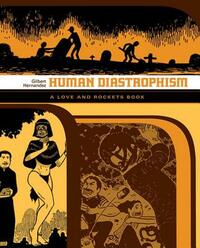Take a photo of a barcode or cover
kevin_shepherd's Reviews (563)
Herein, Hitchens composes a series of 'letters' to those of us who would seek his advice and counsel. Inspired by his students in New York, and by hundreds of others on campuses where he spoke and lectured, Letters to a Young Contrarian reads like a commencement address to a graduating class at Berkley or NYU. This could have easily been titled So You Want To Be A Dissident? or Roadmap To Radical, or maybe The Hitch-Liker's Guide To The Galaxy.
Like every Hitchens book I've ever read (this is my fifth), it is loaded with little pearls of worldly wisdom. Here are but a few of my favorites:
• "...the forces of piety have always and everywhere been the sworn enemy of the open mind and the open book."
• "...consider for a moment what their heaven looks like. Endless praise and adoration, limitless abnegation and abjection of self; a celestial North Korea."
• "Many are the works of genius now in public libraries that would have been incinerated if a roll of opinion had been called."
• "Be even more suspicious than I was just telling you to be, of all those who employ the term "we" or "us" without your permission... Always ask who this "we" is; as often as not it's an attempt to smuggle tribalism through customs."
• "I want to urge you very strongly to travel as much as you can, and to evolve yourself as an internationalist. It's as important a part of your education as a radical as the reading of any book."
• "It especially annoys me when racists are accused of "discrimination." The ability to discriminate is a precious facility; by judging all members of one "race" to be the same, the racist precisely shows himself incapable of discrimination."
• "...every time a Bastille falls one is always pleasantly surprised by how many sane and decent people were there all along."
• "Radicalism is humanism or it is nothing"
• "The literal mind is baffled by the ironic one, demanding explanations that only intensify the joke."
And my favorite bit:
"Never be a spectator of unfairness or stupidity. Seek out argument and disputation for their own sake; the grave will supply plenty of time for silence."
Sage advice.
Like every Hitchens book I've ever read (this is my fifth), it is loaded with little pearls of worldly wisdom. Here are but a few of my favorites:
• "...the forces of piety have always and everywhere been the sworn enemy of the open mind and the open book."
• "...consider for a moment what their heaven looks like. Endless praise and adoration, limitless abnegation and abjection of self; a celestial North Korea."
• "Many are the works of genius now in public libraries that would have been incinerated if a roll of opinion had been called."
• "Be even more suspicious than I was just telling you to be, of all those who employ the term "we" or "us" without your permission... Always ask who this "we" is; as often as not it's an attempt to smuggle tribalism through customs."
• "I want to urge you very strongly to travel as much as you can, and to evolve yourself as an internationalist. It's as important a part of your education as a radical as the reading of any book."
• "It especially annoys me when racists are accused of "discrimination." The ability to discriminate is a precious facility; by judging all members of one "race" to be the same, the racist precisely shows himself incapable of discrimination."
• "...every time a Bastille falls one is always pleasantly surprised by how many sane and decent people were there all along."
• "Radicalism is humanism or it is nothing"
• "The literal mind is baffled by the ironic one, demanding explanations that only intensify the joke."
And my favorite bit:
"Never be a spectator of unfairness or stupidity. Seek out argument and disputation for their own sake; the grave will supply plenty of time for silence."
Sage advice.
"I was more impressed by Wise Blood than any novel I have read for a long time. Her picture of the world is literally terrifying. Kafka is almost the only one of our contemporaries who has achieved such effects. I have tremendous admiration for the work of this young writer." ~Caroline Gordon, literary critic, 1952
Flannery O’Connor herself once said that talking about the symbolism of a novel immediately put constraints on its interpretation.
"When you start describing the significance of a symbol… you immediately begin to limit it, and a symbol should go on deepening. Everything should have a wider significance.”
So, with that said, I’m not going to mention that Enoch Emery sitting on a hilltop in his gorilla costume is unmistakably representational of despotic and fallacious catholic dogma. I will totally let you figure that out for yourself.
Flannery O’Connor herself once said that talking about the symbolism of a novel immediately put constraints on its interpretation.
"When you start describing the significance of a symbol… you immediately begin to limit it, and a symbol should go on deepening. Everything should have a wider significance.”
So, with that said, I’m not going to mention that Enoch Emery sitting on a hilltop in his gorilla costume is unmistakably representational of despotic and fallacious catholic dogma. I will totally let you figure that out for yourself.
I’m no connoisseur of the graphic novel as an art form but I know what I like. Black Hole represents one of those rare events when all the stars are in alignment—when fantastic illustrations merge with a storyline that is both surreal and superb. It’s a book I want to share with friends just so I can be there to see the expression on their faces. It’s weird, it’s a bit erotic, and it’s grotesquely monstrous in all the right places. Five Stars.
dark
mysterious
fast-paced
“A lot of people like to say they aren’t scared of those things. But they never went inside that hotel.” ~Bobby Claborn, Apache Oklahoma
To say I’m generally a skeptic of all things “supernatural” is probably a gross understatement. I’ve never encountered any phenomenon that could not be explained, simply and rationally, with a bit of scientific reasoning. ‘Inexplicable’ just isn’t a part of my normal, everyday vocabulary. With that in mind, it is fair to say that I approached Jeff Provine’s Haunted Oklahoma with more than a little dubious prudence.
Color me pleasantly surprised.
This isn’t your run-of-the-mill collection of campfire ghost stories. Provine’s intertwining of genuine historical references and eyewitness testimonials gives each accounting an educational provenance that makes for fascinating reading, even for an incredulous rationalist like me.
To say I’m generally a skeptic of all things “supernatural” is probably a gross understatement. I’ve never encountered any phenomenon that could not be explained, simply and rationally, with a bit of scientific reasoning. ‘Inexplicable’ just isn’t a part of my normal, everyday vocabulary. With that in mind, it is fair to say that I approached Jeff Provine’s Haunted Oklahoma with more than a little dubious prudence.
Color me pleasantly surprised.
This isn’t your run-of-the-mill collection of campfire ghost stories. Provine’s intertwining of genuine historical references and eyewitness testimonials gives each accounting an educational provenance that makes for fascinating reading, even for an incredulous rationalist like me.
A must-read for those of you who truly love a good ghost story, but pick up an annotated edition if you can find one. The english language has morphed a great deal since 1898 and some of the terminology might prove impedimentary, e.g. hung fire, candlestruck, commodious fly, machicolated crenellate, etc. (then again, perhaps I am just a “lugubrious scullion” with a limited vocabulary?)
*NOTE: Just in case you missed it, Jack Clayton’s 1961 film The Innocents is a remarkable adaptation of this book. It features a stunning performance by the beautiful and talented Miss Deborah Kerr and a screenplay co-written by Truman Capote. Highly recommended!
*NOTE: Just in case you missed it, Jack Clayton’s 1961 film The Innocents is a remarkable adaptation of this book. It features a stunning performance by the beautiful and talented Miss Deborah Kerr and a screenplay co-written by Truman Capote. Highly recommended!
“…I truly believe that for every imaginary problem, there is an imaginary solution.” (pg 23)
Theo Ellsworth’s CAPACITY is far too artful and magical to be adequately described in some layperson’s social media review. Yet here I am, the quintessential poster child for the dull and unimaginative, giving it a go.
“I created another version of myself, then abandoned him.” (pg 78)
The Artwork: Ellsworth draws as though ink is abundant and paper is scarce. There is very little (if any) unused space in his art. Every nook and cranny holds part of the story. There are details within details within details; it would be maddeningly overwhelming were it not so brilliantly put together.
“The Pudding of Obligation (placed upon the Doily of Resentment)” (pg 118)
The Dialogue: The author is largely having a stream of consciousness discussion with himself, and you—dear reader—are along for the ride. His anxieties and aspirations are a conversational subtext for all that he puts on a page.
“This is an imaginary outfit that I wear over my everyday clothes every Tuesday. I highly recommend doing this as a weekly practice. It has changed my life. Imaginary Outfit Tuesdays (IOT): see you there!” (pg 259)
I know my description makes this sounds like madness, and maybe it is, but it is an ordered madness. This is the coherent chaos of a lucid daydream and now I want to just sit here and ruminate on this experience for a while.
“Every thought I’ve ever had is all part of this big invisible project that I’ll keep working on until I die.” (pg 314)
Theo Ellsworth’s CAPACITY is far too artful and magical to be adequately described in some layperson’s social media review. Yet here I am, the quintessential poster child for the dull and unimaginative, giving it a go.
“I created another version of myself, then abandoned him.” (pg 78)
The Artwork: Ellsworth draws as though ink is abundant and paper is scarce. There is very little (if any) unused space in his art. Every nook and cranny holds part of the story. There are details within details within details; it would be maddeningly overwhelming were it not so brilliantly put together.
“The Pudding of Obligation (placed upon the Doily of Resentment)” (pg 118)
The Dialogue: The author is largely having a stream of consciousness discussion with himself, and you—dear reader—are along for the ride. His anxieties and aspirations are a conversational subtext for all that he puts on a page.
“This is an imaginary outfit that I wear over my everyday clothes every Tuesday. I highly recommend doing this as a weekly practice. It has changed my life. Imaginary Outfit Tuesdays (IOT): see you there!” (pg 259)
I know my description makes this sounds like madness, and maybe it is, but it is an ordered madness. This is the coherent chaos of a lucid daydream and now I want to just sit here and ruminate on this experience for a while.
“Every thought I’ve ever had is all part of this big invisible project that I’ll keep working on until I die.” (pg 314)
I see March of the Crabs and two things come to mind: the Red Crabs on Christmas Island and Annette Finklestein (junior/senior prom, 1979). Neither can be found in this book.
What CAN be found is cancer simplicimus vulgaris, the marbled crab, also known as the square crab (depending on the french/english translation). Marbled crabs have the inauspicious distinction of being the only animal on the planet that does not evolve. They spend their entire lives moving back and forth in a straight line, unable to make even the slightest turn. This inability to alter their course, to adapt to pollution and habitat destruction, has set them on a trajectory toward certain extinction. Or so it seems...
Arthur de Pins has constructed a humorous but sad apologue. He has set his cast of characters smack-dab in the dire straights of the anthropocine, against the backdrop of ecosystem annihilation and its accompanying wake of human indifference. As contrived as this feels, I still applaud his efforts and I hope this 'entertainment' inspires a little empathy and activism.
What CAN be found is cancer simplicimus vulgaris, the marbled crab, also known as the square crab (depending on the french/english translation). Marbled crabs have the inauspicious distinction of being the only animal on the planet that does not evolve. They spend their entire lives moving back and forth in a straight line, unable to make even the slightest turn. This inability to alter their course, to adapt to pollution and habitat destruction, has set them on a trajectory toward certain extinction. Or so it seems...
Arthur de Pins has constructed a humorous but sad apologue. He has set his cast of characters smack-dab in the dire straights of the anthropocine, against the backdrop of ecosystem annihilation and its accompanying wake of human indifference. As contrived as this feels, I still applaud his efforts and I hope this 'entertainment' inspires a little empathy and activism.
Along with Funny in Farsi: A Memoir of Growing Up Iranian in America by Firoozeh Dumas, this is the second Iranian themed book I've read this year. It would be difficult to adequately express just how much these two treasures of literature have altered my perception of middle eastern culture and the remarkable and resilient people who reside there.
Persepolis is a guided tour through the terror and turmoil of revolution and religious extremism. Satrapi's artwork is remarkable, it complements this coming of age memoir beautifully. I can't imagine a story better suited for the medium of the graphic novel or an artist more adept at conveying both the innocence of childhood and the horrors of war, often at the same time.
Five Stars.
Persepolis is a guided tour through the terror and turmoil of revolution and religious extremism. Satrapi's artwork is remarkable, it complements this coming of age memoir beautifully. I can't imagine a story better suited for the medium of the graphic novel or an artist more adept at conveying both the innocence of childhood and the horrors of war, often at the same time.
Five Stars.
Love and Rockets
“Up the stalk of the night that you loved, that I loved, creeps my torn prayer, rent and mended, uncertain and unsure... Without a place and with a place to rest - living darkly with no ray of light - I burn myself away.”
A Latino soap opera with lots and lots of pechos. I’m talking mucho pechos. 66 of them! (Yes I counted
“Up the stalk of the night that you loved, that I loved, creeps my torn prayer, rent and mended, uncertain and unsure... Without a place and with a place to rest - living darkly with no ray of light - I burn myself away.”
A Latino soap opera with lots and lots of pechos. I’m talking mucho pechos. 66 of them! (Yes I counted
I thankfully credit Christopher Hitchens and Richard Dawkins for putting me on to Wodehouse, but this (my second book of Jeeves) seems somehow darker and more contrived. Ring for Jeeves is, as I understand it, the only book in the series without the presence of Bertie Wooster. Maybe that’s it. Maybe it’s Costello without Abbott? Hardy without Laurel? Chaney without Bush? Whatever it is, Ring seems somehow less inspired.









